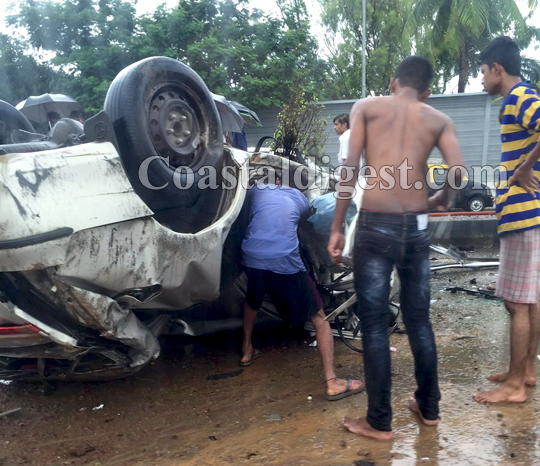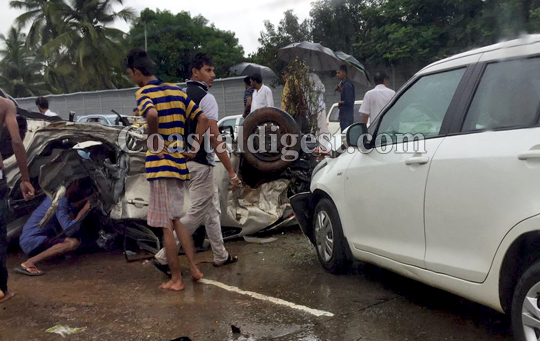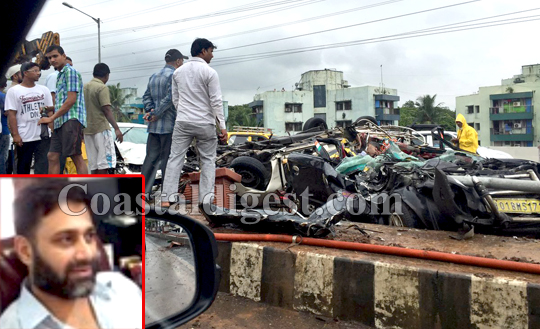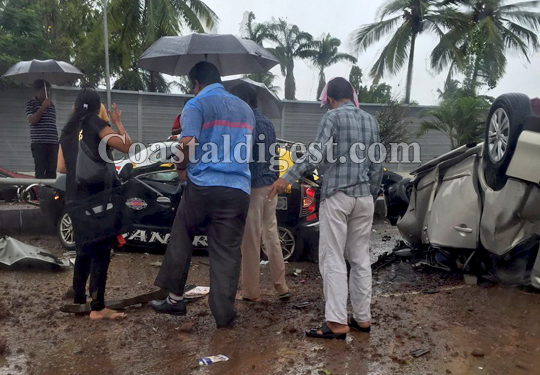Udupi, Jul 20: At least three people including a businessman from coastal Karnataka were killed and two others injured in a serial mishap occurred on the Eastern Freeway at Trombay in Mumbai on Tuesday.
The deceased were identified as Abdul Hameed (45), son of Mahmoud Hasan from Shirva in Udupi, and two people from Maharashtra-Jaswant (40) and Vijay Kumar. Abdul Hameed was driving the Innova.
The incident, involving a white Maruti Swift Dzire, golden Toyota Innova and a black and yellow taxi, occurred around 8:50 am near the Wadala exit.
Eye witnesses claimed that the driver of the Innova lost control of the vehicle and rammed into the Taxi. Following which, it toppled on the road the Dzire crashed into the Innova.
Bystanders immediately came to the rescue of those who were injured and removed them from the debris. Traffic police was alerted about the incident around 9:15 am.
The accident led to massive traffic chaos and vehicles on Eastern Freeway diverted from RCF colony to Chembur. Entry from Deonar circle was closed for several hours.
Traffic police had to use cutters to remove the bodies and rescue the injured.
An official from RCF police station confirmed that the accident occurred after the Innova driver lost control of the vehicle at high speed. He was travelling towards Chembur, when he rammed his car into the Dzire and crossed over to the opposite side. The taxi was travelling in the first lane of the northbound road towards CST.
Two passengers from the Swift Dzire, who were injured during the accident, were rushed to Shatabdi hospital in Chembur.









Comments
Inna llillahi wa inna elaihi rajiwoon
Inna lillahi wa inna ilahi raajiuoon
Verily, we come from ALLAH and to him shall we return. May the Almighty forgive the short coming of the deceased and grant him a place in the paradise. Ameen
Isn't the life too short? Have we prepared enough to leave? The question we need to ask ourselves.
inna lillahi wa inna ilaihi raajiwoon.. May Allah forgive their sins and give strength to their families to bear the pain of their loss.....
Add new comment